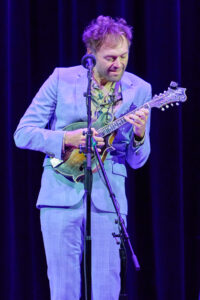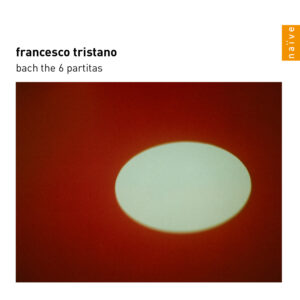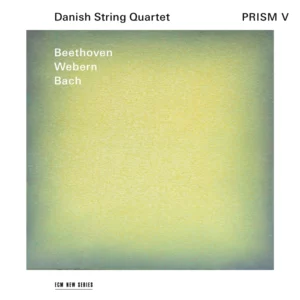
Chris Thile at 92nd Street Y
Kauffmann Concert Hall
October 19, 2025
NEW YORK – Chris Thile is one of the best mandolinists around, and he has established himself as a singer, songwriter, and storyteller as well. On Sunday, he performed a solo concert at the 92nd Street Y that brought together these various activities. From 2016 to 2020, Thile hosted Live from Here, a variety show for public radio modeled on its predecessor A Prairie Home Companion. The pandemic made continuing the show impractical but he has since returned to the concept via podcasting, and his performance at the Y was not dissimilar from its format. The audience was regaled with stories as well as songs (and instrumentals), and in between with bits of banter.
The program included three substantial works by Bach, the Partitas in E major and
D minor, and the C major Sonata. They are included on Thile’s latest Nonesuch recording, the second volume of his traversal of the solo violin pieces. Interspersing the main movements of these pieces were renditions of songs from Thile’s solo work and groups Punch Brothers and Nickel Creek.
Such variety sometimes yielded unusual sequencing. In a brief monologue, Thile shared that he had discovered Bach at a young age and only belatedly learned to read music in order to be able to learn the solo violin pieces on mandolin. Thile reminded the audience that Bach said that music was both “To the glory of God and for the refreshment of the soul,” the mandolinist suggesting that he had started his own music making due to the former and now favored the latter part of the motto. In the early days of Nickel Creek, when Thile was a teenager, Toad the Wet Sprocket’s frontman Glen Phillips toured with them. Awed by his musicianship but concerned for his soul, the mandolinist made an attempt to convert Phillips to Christianity, only to be politely rebuffed. Nickel Creek would later record a song, “Goddamned Saint,” that explored the connotations of this meeting, especially as seen through a vantage point that was more secular and less proselytizing.
The song was followed by the Chaconne from the D minor Partita, a piece that Bach wrote shortly after the death of his first wife. Musicologist Helga Thoene and others have likened it to the funerary violin tradition of the eighteenth century, and Thoene has made a convincing case that chorales traditionally used in Lutheran services for the dead are embedded in the Chaconne. Despite following the considerably less somber Nickel Creek song, it served as the concert’s emotional centerpiece. An extended meditation on a ground bass, it moves through a series of melancholic variations, ever more technically challenging, until a section in D major in which the mood seems more hopeful. When playing this portion of the Chaconne, Thile, in a moving intimate gesture, stepped away from his mandolin’s microphone, playing unplugged at the lip of the stage. The piece eventually returns to minor, with a formidable conclusion that was performed with a gravity one doesn’t often associate with the mandolin.
After this, Thile lightened the mood considerably by asking the audience to call a few fiddle tunes that he then fashioned into an improvised medley. His playing knit together the disparate melodies fluidly in an ebulliently virtuosic display. Once again, the mood changed, as Thile shifted to a monologue about his grandmother, a medium with a famous reputation for her seances. This was followed by a performance of the C major Sonata. Between the third and fourth movements, Thile convened a moment of silence, in which he invited the audience to remember people whom they loved who had passed away. The set’s conclusion was the fast finale of the sonata which ended in a flurried flourish of passagework. Even those who might be skeptical of the prospect of Bach translating well to mandolin would be hard pressed to dismiss Thile’s commitment and musicianship out of hand, as the performances at the 92nd Street Y and the Nonesuch recording well attest.
Ever the tightrope walker, Thile offered for the audience to select his encore. Knowing his fondness for Radiohead, a number of songs from their catalog were shouted out. Thile decided to take on the challenge of playing one that he hadn’t done live before, “Weird Fishes/Arpeggi,” from the album In Rainbows. There was one caveat: an audience member had to share a screen-locked phone with the lyrics. With “Weird Fishes’” motoric riff, its tangy suspended harmonies, and a display of muted string percussion, Thile’s rendition resembled the energy of the original, while his voice navigated its sinuous melody, lyrics intact. As he quipped, “This has been a lot of mandolin,” to which the audience roared back in approval.
-Christian Carey


